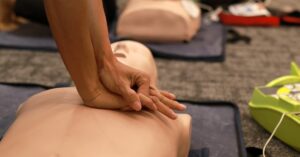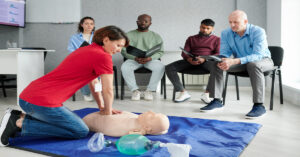Ever since the early days of the Internet, educational institutions and others have been preparing for the day when courses could be offered online. Now that this day is here and we’re in the early stages of online education for real, people have started asking questions about their use and usefulness. At the same time, several fallacies have also developed. To combat that, here are four common myths about getting medical certifications online.
All Certifications Can Be Earned Online
While multiple medical and other types of certification courses are available online, you can’t earn all of them strictly through online classes alone. At CPR123, you can take BLS classes online, as well as similar courses and certifications in CPR, ACLS, PALS, and NRP. You will still need to schedule and attend skills testing after you have completed the course. Carefully read the descriptions of the courses you wish to take and ensure that you can learn through an online course and that your current or potential employers accept certification this way.
Online Learning Is Overly Simplified
If you believe that and intend to take an online course, you’re in for a surprise. Most online courses are carefully created to replicate the classroom experience, so you’ll receive the same thorough and challenging series of lectures and demonstrations you’d encounter in a brick-and-mortar school. On the other hand, online courses do allow the benefit of being able to learn and study at your own pace. Just keep in mind that you still need to attend class regularly and submit coursework on time.
Online Learning Is Depersonalized
The third of the four common myths about getting medical certifications online is a common attitude about the Internet in general. People think that the Internet has separated people, with few to no face-to-face interactions. The truth is that while online learning may involve talking to others through a screen, there are more opportunities to talk, discuss, and share with one another, whether through email, texting, messaging, message boards, forums, or even live scheduled study sessions. The instructor is not a distant figure either, and is available before, during, and after a class for questions, suggestions, and concerns. The Internet is a communication tool first and foremost.
Online Courses Require Technical Know-How
Not everyone is online, and maybe people may even consider themselves technophobes. Therefore, some students may be averse to seeking certification online, believing online learning to be too complex. Again, this is not true. Online learning is designed to be intuitive and interactive. If you can click a button, you can participate in an online course, so don’t let technophobia stop you from entering into a great learning experience!







